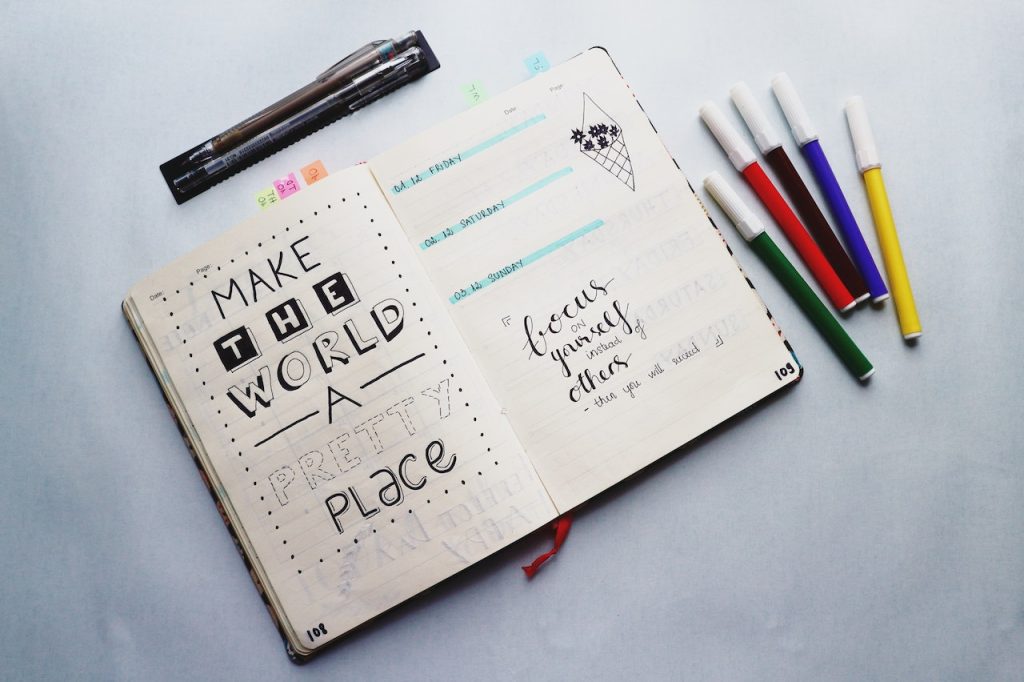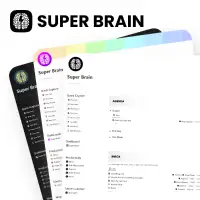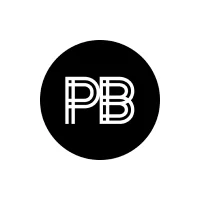Benefits of Journaling for Personal Growth and Life Planning

Why everyone should keep a journal? surprising benefits
In our fast-paced world, it’s easy to become overwhelmed by the demands of everyday life, and finding the time for self-reflection and personal growth can seem like a luxury. However, there is a simple and accessible tool that can help you unlock your inner potential, improve your life, and plan for the future: journaling. In this blog post, we’ll explore the numerous benefits of journaling for personal growth and life planning.

11 Journaling Benefits and How to Start Right Now
1. A Window to Your Mind
Self-Reflection
Journaling provides a safe space to explore your thoughts, emotions, and experiences. It allows you to gain insights into your life, make sense of your feelings, and understand your thought patterns.
Emotional Release
Writing can be a therapeutic outlet for expressing and releasing pent-up emotions, reducing stress and anxiety.
Problem Solving
Journaling helps you work through challenges and solve problems. When you put your thoughts on paper, you can see issues more clearly and generate solutions.
2. Personal Growth and Self-Discovery
Goal Setting
Journaling helps you define your goals and aspirations, setting the stage for personal growth. When you write down your objectives, you’re more likely to work towards them.
Tracking Progress
Keeping a journal allows you to track your personal growth journey. You can celebrate achievements, no matter how small, and reflect on lessons learned from setbacks.
Self-Discovery
Journaling unveils hidden facets of your personality, helping you understand your values, passions, and purpose in life.
3. Enhanced Creativity and Problem-Solving
Creative Outlet
Journaling can spark creativity. Whether you write stories, poems, or random thoughts, it nurtures your imagination.
Critical Thinking
Writing regularly enhances your critical thinking skills. It encourages you to analyze and evaluate situations, making you more adept at making informed decisions.
Brainstorming and Idea Generation
Journaling is an excellent tool for brainstorming ideas, making it indispensable for life planning and goal setting.
4. Improved Mental Health
Stress Reduction
Expressing your feelings on paper can alleviate stress and improve your mental well-being. Journaling can be a powerful coping mechanism during challenging times.
Self-Confidence
Tracking your progress and achievements boosts your self-esteem and confidence.
Emotional Regulation
Writing about your emotions can help you better understand and manage them. It’s a valuable tool for emotional regulation and maintaining a balanced mindset.
5. Life Planning and Accountability
Vision and Clarity
Journaling helps you envision your ideal future, laying the foundation for life planning. When you have a clear vision, you can set specific, achievable goals.
Accountability
Writing down your goals and plans holds you accountable. It’s like having a personal coach cheering you on and helping you stay on track.
Documenting Progress
Your journal becomes a valuable record of your life’s journey, enabling you to reflect on how far you’ve come and where you’re headed.
6. Journaling as a Stress-Relief Valve
“Journaling can be a great pressure releasing valve when we feel overwhelmed or simply have a lot going on internally,” says Amy Hoyt, PhD, founder of Mending Trauma. Research supports this claim. For instance, a study involving patients, families, and healthcare practitioners from a children’s hospital revealed a noticeable reduction in stress levels after a particular journaling exercise. Participants were asked to list three things they were grateful for, summarize the story of their life in six words, and jot down three wishes they had. A follow-up study conducted 12 to 18 months later found that 85 percent of the participants deemed the writing exercise helpful. Remarkably, 59 percent continued to use writing as a means to cope with stress.
7. Health Benefits of Journaling
In a 2018 research review, it was suggested that writing about your deepest thoughts and emotions could have far-reaching health benefits. These benefits included a reduction in stress-related doctor visits, lower blood pressure, improved mood, and an overall increase in well-being. Additionally, a study involving 70 adults with medical conditions and anxiety found that writing about positive experiences, such as gratitude, over 12 weeks was linked to reduced distress and increased well-being. In this same study, participants reported fewer symptoms of depression and anxiety after one month, and after the first and second months, reported increased resilience.
8. Creating Space from Negative Thoughts
When negative or anxious thoughts flood our minds, it’s easy to become entangled in their catastrophic narratives. Journaling can help create the necessary distance to consider these thoughts objectively. As Sabrina Romanoff, PsyD, a clinical psychologist in New York City, explains, this distance is formally known as cognitive defusion, a concept derived from acceptance and commitment therapy. It suggests that you are not your thoughts, emotions, or physical symptoms; rather, you are the context in which they occur. In other words, if your thoughts aren’t serving you, you don’t have to believe them. Journaling can help you see your thoughts as distinct from your identity.
To emphasize this separation during your journaling practice, try incorporating the phrase, “I’m having the thought that…”
9. Processing Emotions through Journaling
Many people go about their daily lives without paying much attention to their emotions or by deliberately suppressing them. The problem with this approach is that our emotions often resurface, affecting our actions, with or without our awareness. Journaling provides a safe space to process these emotions, allowing you to name and accept specific emotions, which, in turn, reduces their intensity. This makes challenging emotions more manageable and less overwhelming.
10. Journaling for Decision-Making and Clarity
When facing a situation or making a decision, writing down your thoughts and feelings is the first step in understanding how best to proceed. After allowing your emotions to settle a bit, you might discover that they are trying to convey a message. For instance, your anger could be a sign that you need to establish firmer boundaries with someone, while your sadness may be urging you to reach out and strengthen your connections. By putting your concerns, questions, and emotions on paper, you gain a clearer picture of your needs, providing more insight into your desires than a jumble of thoughts swirling in your head.
11. Journaling for Self-Discovery
Consider yourself a puzzle, with a different piece or pattern to discover every day. Journaling provides a valuable pause for you to reconnect with yourself and rediscover who you are. When you write, you uncover your preferences, pain points, fears, favorites, and dreams. You are continually evolving, and journaling helps you listen, bear witness to these changes, and get to know yourself on a deeper level.

13 Simple Tips to Kickstart Your Journaling Journey
Tips for Effective Journaling
Whether you’re new to journaling or returning after a hiatus, these nine tips will help you establish a sustainable journaling habit:
- Take a Micro-Step: Begin with small, manageable steps. Setting a timer for just one or two minutes a day for your journaling session, as suggested by Amy Hoyt, can make it more likely that your brain will embrace the habit.
- Choose the Simplest Tools: Start with the method that is easiest to incorporate into your routine. It could be writing in a blank document on your laptop, using a note-taking app on your phone, or putting pen to paper.
- Free Writing: Start by taking a few deep breaths, becoming aware of your immediate surroundings, and writing whatever comes to mind. If you hit a mental roadblock, describe the experience until something else emerges in your journaling.
- Let It All Out: Write your thoughts and feelings without censorship. Remember, it’s your journal, so you can be as candid, straightforward, and honest as you wish. To avoid the temptation of editing, try writing as quickly as possible.
- Anchor Your Journaling: If you prefer structure, journal at the same time every day. For example, write your thoughts when you first wake up or process the day before bedtime. You can also anchor your journaling to a well-established habit to increase the likelihood of consistency. For instance, journal before or after your nightly prayer, while waiting in the car rider line, or during a TV commercial break.
- Connect the Dots: To sharpen your self-awareness, jot down your feelings regarding a specific situation on a day-to-day basis. For instance, you might simply write about what happened that day, the feelings you’re experiencing, and the thoughts running through your mind.
- Avoid Re-Reading Painful Entries: Lori L. Cangilla, PhD, advises against revisiting the raw details of difficult situations. If you feel you haven’t finished processing a situation, focus on what you’re grateful for in that situation or how you can apply what you’ve learned from it.
- Explore a Prompt: Prompts are powerful tools to help you gain a better understanding of yourself, especially when you’re unsure what to journal about. You can try prompts like recalling your favorite childhood memories, describing an outdoor experience in nature, discussing something you fear doing and why, or exploring something you love doing and why. Additionally, you can describe yourself, including your personality and roles at work and home, and then provide a description from the perspective of a close friend or family member. If you wake up tomorrow having everything you want, write about what that looks like, who you’re with, and how you’re spending your time.
- Switch Shoes: If you’re journaling about a disagreement or a challenging situation, try writing with empathy. Consider the other person’s perspective and the motives behind their actions. Putting yourself in their shoes can help you gain clarity on the situation, reduce resentment, and possibly find a solution.
- Find Your Style: There’s no one-size-fits-all approach to journaling. Experiment with different formats, such as daily entries, gratitude journals, or art journals, to find what works for you.
- Be Consistent: Make journaling a regular habit. Dedicate a specific time each day or week to ensure you stick with it.
- Embrace Imperfection: Your journal is a personal space. Don’t worry about grammar, spelling, or making it look perfect. Let your thoughts flow naturally.
- Reflect and Review: Periodically go back and read your past entries. This allows you to see your personal growth and gain fresh insights.

Your Journey of Self-Discovery
Journaling offers a multitude of benefits. By dedicating a few minutes each day to this practice, you can reduce stress, boost your well-being, better understand your needs, and gain a deeper understanding of yourself. Your journal serves as a concrete method for self-discovery and self-identification, allowing you to learn who you are and what you require. To establish a lasting journaling habit, begin with a few minutes each day, or more, according to your preference. Use your journal to explore your thoughts, process challenging situations, record the present moment, or respond to a prompt. The beauty of journaling is that it’s entirely up to you.
Journaling is more than just writing; it’s a journey of self-discovery, personal growth, and life planning. It’s a powerful tool that empowers you to delve into your thoughts, set and achieve goals, nurture your creativity, and enhance your mental health. So, pick up that pen or open a digital note and start your journey towards a more fulfilled and empowered life through journaling. Your future self will thank you for it.
Also read: 30 Cognitive Biases & Psychological Misjudgments (Do You Know Thyself?)

















